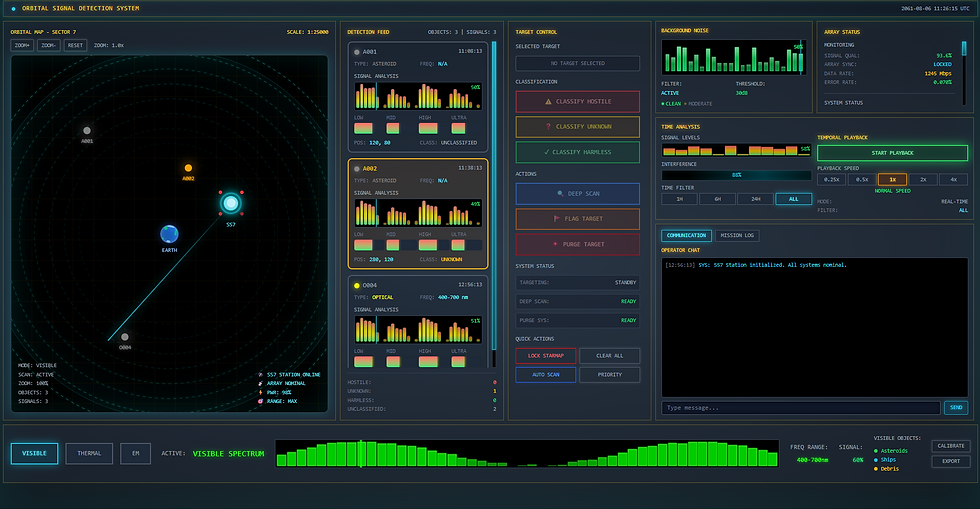Demystifying Amazon Bedrock: The Future of Machine Learning Deployment
- Samuel Mitterrutzner

- May 29, 2024
- 4 min read
Amazon Bedrock is a fully managed service provided by Amazon Web Services (AWS) designed to simplify the process of building and deploying machine learning (ML) applications. Bedrock aims to democratize access to powerful ML models by offering a user-friendly platform where developers can leverage pre-trained models and customize them for specific tasks without deep expertise in data science or ML.
Core Features of Amazon Bedrock
Amazon Bedrock integrates seamlessly with various AWS services and tools to create a cohesive ML ecosystem. Two notable integrations are the use of custom knowledge bases and agents:
Custom Knowledge Bases: Amazon Bedrock allows users to enhance pre-trained models with their proprietary data, effectively creating a custom knowledge base. This customization enables models to perform more accurately on domain-specific tasks, providing tailored solutions that align with unique business needs.
Agents: Bedrock supports the deployment of intelligent agents that can automate processes and perform complex tasks based on the insights derived from ML models. These agents can be integrated into business workflows to improve efficiency and decision-making.
AWS Bedrock vs. AWS SageMaker
Choosing between AWS Bedrock and AWS SageMaker depends on your specific needs and expertise:
Benefits of AWS Bedrock:
Ease of Use: Bedrock is designed for simplicity, making it accessible to users with minimal ML experience. The platform handles much of the complexity, allowing users to focus on application development.
Pre-Trained Models: Bedrock offers a range of pre-trained models, reducing the time and effort required to develop ML solutions from scratch.
Serverless and Scalable: Bedrock is a serverless service that automatically scales to meet demand. This means you don't have to worry about managing servers or provisioning capacity, as AWS handles the scaling for you.
Drawbacks of AWS Bedrock:
Limited Customization: While Bedrock simplifies ML deployment, it may not offer the same level of customization and control as SageMaker, which can be a limitation for advanced users.
Regional Availability: Not all ML models are available in all AWS regions, which can be a problem if you are restricted to an AWS region where the desired model is not available.
Benefits of AWS SageMaker:
Flexibility and Control: SageMaker provides a comprehensive suite of tools for building, training, and deploying ML models. It offers greater flexibility and customization options, catering to experienced data scientists and developers.
Scalability: SageMaker is designed to scale with your needs, supporting a wide range of use cases from experimentation to production-level deployments.
Drawbacks of AWS SageMaker:
Complexity: SageMaker’s extensive features can be overwhelming for beginners, requiring a steeper learning curve compared to Bedrock.
Resource Intensive: Developing models from scratch can be resource-intensive, both in terms of time and computational power.
Security and GDPR Compliance
Security is a paramount concern when dealing with ML models and sensitive data. Amazon Bedrock adheres to strict security standards to protect user data:
Data Storage: AWS Bedrock does not store the data fed to the model. Instead, data is processed in real-time and immediately discarded after the inference process. This approach minimizes the risk of data breaches and ensures that sensitive information is not persistently stored.
GDPR Compliance: Amazon Bedrock complies with the General Data Protection Regulation (GDPR) requirements, providing users with robust data protection and privacy measures. AWS offers tools and features to help users manage their data in compliance with GDPR, including data encryption and access controls.
Pricing Model of Amazon Bedrock
Amazon Bedrock’s pricing is usage-based, and it includes charges for model inference and customization. Here's a detailed breakdown:
On-Demand and Batch Pricing: Charges are based on the number of input and output tokens processed. For text generation, you pay per 1,000 tokens. For image generation, you pay per image. Batch mode allows large-scale predictions to be processed simultaneously, with pricing similar to On-Demand mode.
Provisioned Throughput: Designed for consistent, high-volume workloads, this mode allows you to reserve throughput capacity. Pricing is based on the number of model units and the length of the commitment (e.g., 1-month or 6-month terms).
Model Customization: Charges for customizing a model include the cost of training based on the number of tokens processed and storage fees for the customized model. Inferences using customized models require provisioned throughput pricing.
Model Evaluation: Users pay for the inference costs during model evaluation. Human-based evaluations incur an additional fee per completed task. Automatically generated evaluation scores are provided at no extra charge.
Comparison with OpenAI Pricing
OpenAI's pricing model is also based on the number of tokens processed, making it quite similar to AWS Bedrock.
To compare using 100,000 tokens for both Bedrock and OpenAI:
AWS Bedrock:
Llama3 Model: At a cost of $0.0004 per 1,000 input tokens and $0.0006 per 1,000 output tokens:
Input tokens: 50,000 tokens x $0.0004/1,000 tokens = $0.02
Output tokens: 50,000 tokens x $0.0006/1,000 tokens = $0.03
Total = $0.05
OpenAI:
GPT-3.5 Turbo:
100,000 tokens x $0.0005/1,000 tokens for prompt tokens = $0.05
100,000 tokens x $0.0015/1,000 tokens for output tokens = $0.15
Total = $0.20
For more detailed pricing information, you can visit the Amazon Bedrock pricing page and OpenAI pricing page.
Conclusion: When to Use AWS Bedrock
AWS Bedrock is an excellent choice for businesses seeking to integrate ML into their operations without the need for extensive ML expertise. Its ease of use, combined with the availability of pre-trained models, makes it ideal for rapid development and deployment of ML applications. However, for projects requiring deep customization and advanced ML capabilities, AWS SageMaker may be more suitable. Bedrock is particularly beneficial for organizations that need to deploy ML solutions quickly and efficiently while maintaining a focus on specific business outcomes. Additionally, its adherence to stringent security measures and GDPR compliance makes it a reliable choice for handling sensitive data in regulated industries.






Comentarios